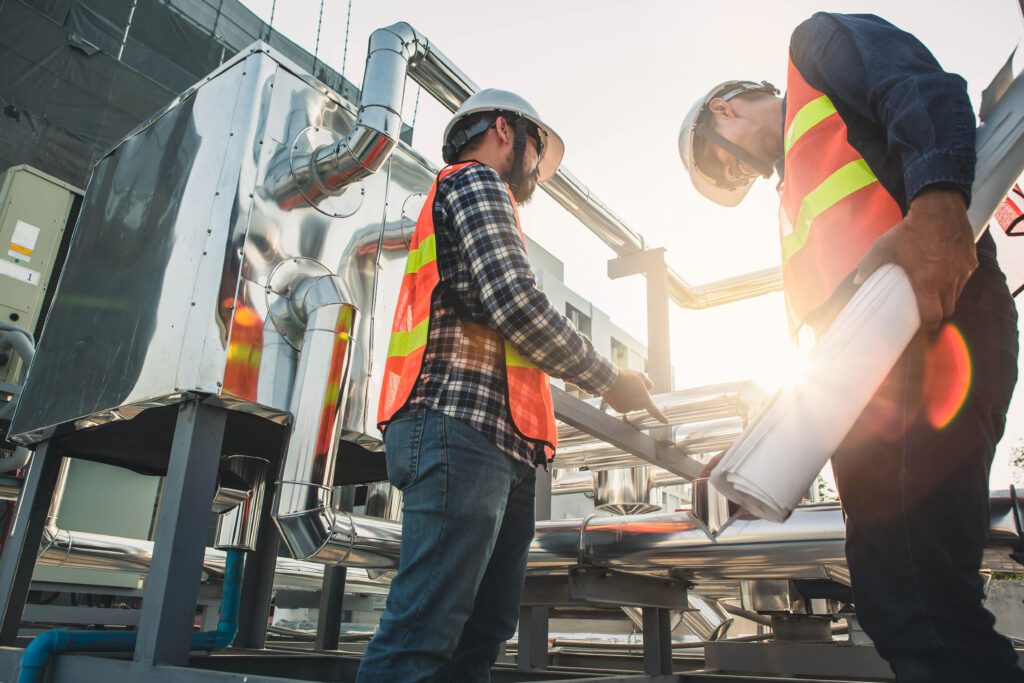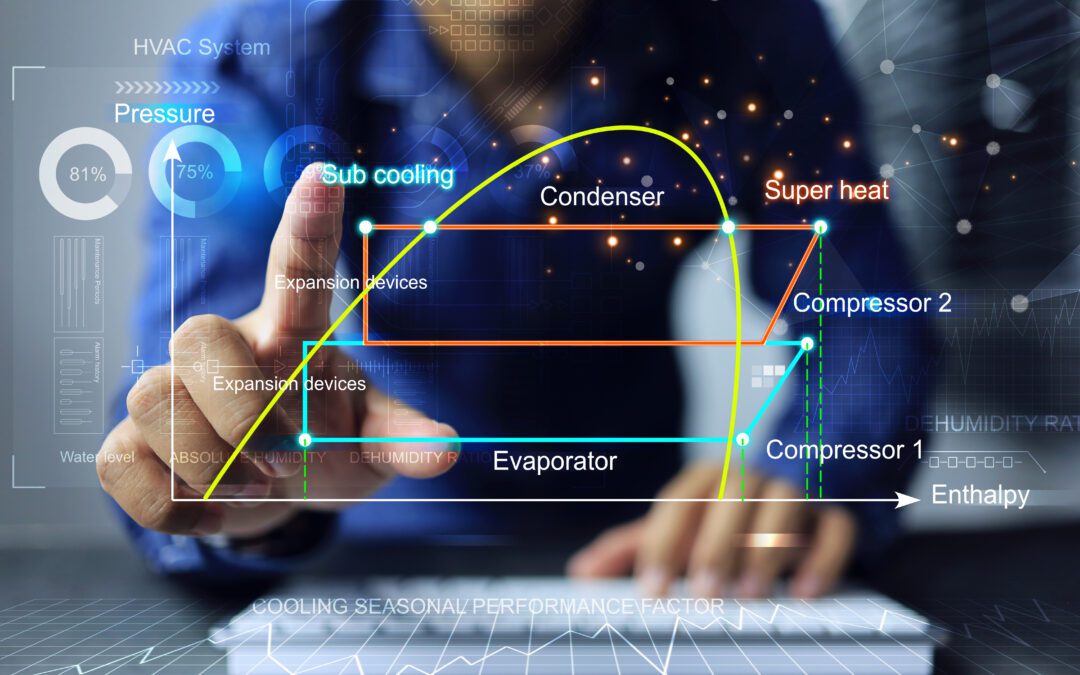Pioneering Efficiency, Sustainability, and Exceptional Comfort in the HVAC Industry
Predicting the exact state of technology in any industry several years into the future is challenging, but based on current trends,we can anticipate several advancements in the HVAC industry by 2027: Here are some key trends that illustrate the direction the HVAC industry is heading:
- Smart HVAC Systems: Smart thermostats and HVAC systems connected to the Internet of Things (IoT) enable homeowners and building managers to control heating and cooling remotely. These systems adapt in real time based on user behavior, weather conditions, and occupancy, maximizing energy efficiency.
- Predictive Maintenance: IoT sensors and data analytics allow HVAC systems to predict when components might fail. This proactive approach to maintenance reduces downtime, extends the lifespan of equipment, and saves on repair costs.
- Energy-Efficient Technologies: Advanced technologies, including variable refrigerant flow (VRF) systems, geothermal heat pumps, and energy recovery ventilation (ERV) systems, are becoming more mainstream. These technologies significantly reduce energy consumption, making them popular choices for both residential and commercial applications.

- Green HVAC Solutions: The HVAC industry is increasingly focused on eco-friendly refrigerants and materials. Environmentally friendly refrigerants with low Global Warming Potential (GWP) are replacing traditional, harmful ones, aligning the industry with global efforts to combat climate change.
- Artificial Intelligence and Machine Learning: AI-driven HVAC systems optimize heating and cooling based on historical data, weather forecasts, and user patterns. Machine learning algorithms continually adapt, ensuring precise temperature control and energy efficiency.
- Integration with Renewable Energy: The systems are integrated with renewable energy sources like solar power. Hybrid systems that combine traditional HVAC technology with solar panels are gaining popularity, reducing reliance on the grid and decreasing operational costs.
- Air Quality Enhancement: HVAC systems are incorporating advanced air purification technologies to improve indoor air quality. UV-C light, HEPA filters, and advanced ventilation systems are becoming standard features, especially in commercial buildings and healthcare facilities.
- Augmented Reality (AR) for Maintenance: Technicians are utilizing AR tools for maintenance and repair tasks. AR glasses provide real-time guidance, enabling technicians to diagnose issues more quickly and perform repairs accurately.
- Building Automation and Controls: Advanced Building Management Systems (BMS) with sophisticated controls and automation features are becoming essential. These systems allow centralized monitoring and control of HVAC, lighting, and other building functions, optimizing energy usage and occupant comfort.
You Might Also Like: AI Revolutionizes Digital Marketing: Smarter Strategies
The future of technology in the HVAC industry is defined by intelligent, energy-efficient, and environmentally conscious solutions. These advancements not only enhance comfort and convenience for users but also contribute significantly to global sustainability goals by reducing energy consumption and minimizing environmental impact.



